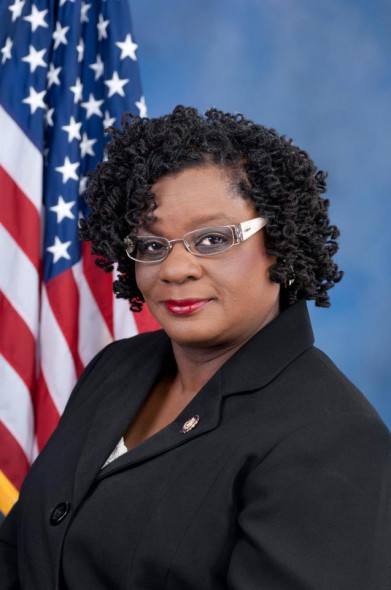Evers, Moore Target Prescription Drugs
Skyrocketing costs at issue.“Like taking on the NRA,” says a consumer activist.
Gov. Tony Evers and other Wisconsin leaders announced this week that they are taking aim at high prescription drug prices.
Evers on Tuesday signed an executive order creating a task force to study the development, pricing, distribution, and purchasing of prescription drugs.
“Picking up a medication shouldn’t break the bank, but it often does for our families and our seniors with the rising costs of healthcare and prescription drugs,” Evers said in a statement.
The task force will examine strategies in other states for bringing down prescription drug prices, consider ways Wisconsin could work with other states and the federal government, and make recommendations.
Tuesday was also “People Over Pharma Profits” National Day of Action, with events in 34 states around the country. Wisconsinites gathered in Milwaukee to demand action on lowering drug prices. U.S. Rep. Gwen Moore (D-Milwaukee) joined a news conference organized by Wisconsin Citizens Action to draw attention to the problem of skyrocketing prescription drug costs — estimated at $457 billion in 2015, or 17% of all spending on health care.
The average price hikes for prescription drugs of 6% a year since 2000 “is unsustainable,” Moore said. “Prescription drug cost is a national crisis, no matter where you live.”
No one is immune, she added, from insurance plans and businesses to people at all income levels. “The profiteering in drug prices is at the centerpiece of the high cost of health care.”
Robert Kraig, executive director of Citizen Action of Wisconsin, sees the spiraling cost of prescription drugs as a major issue for the 2020 election.
“It’s like taking on the NRA,” he told Wisconsin Examiner, describing the fight to make pharmaceutical companies stop charging high prices that come with a human cost as well. “It’s going to require an incredible movement to take on the most well-funded lobby in Washington.”
House and Senate panels in Washington have launched investigations into the skyrocketing price of insulin, and Moore quoted a Kaiser Family Foundation survey that found that in as many as 1 in 4 families, someone has reported skipping doses or cutting medication doses in half to stretch their use.
Moore pointed to several remedial bills in Congress. One bipartisan measure that passed the House Ways and Means Committee, of which Moore is a member, would promote transparency in how drug prices are set and require drug manufacturers to justify price increases exceeding 10% a year.
Other legislation that has passed the full House of Representatives expands availability of generic drugs and aims to promote stronger price competition among drugmakers; Moore said it is now stuck in the Senate and pointed a finger at Majority Leader Mitch McConnell (R-Kentucky) for blocking the bill from advancing there.
State Sen. Latonya Johnson (D-Milwaukee) cited projections that in Wisconsin, prescription drugs will cost $1.3 billion in Wisconsin in 2019, with prices rising 5% to 8% a year over the next two years. Anti-opioid drugs have been among those she said have become unaffordable even as a new report spotlights opioid deaths as among contributors to declining life expectancy and rising mortality rates in the state.
“We’re paying more than any other country simply because we’re the only democracy in the world that doesn’t use its government’s own bargaining power to get a better price,” he added.
As long as pharmaceutical companies are traded on Wall Street, which demands continually higher returns, prices will continue to go up, unless the government steps in. Not only does the US pharmaceutical industry act as a monopoly, there are even industry protections at the international level, written into the new version of NAFTA.
There are things that can be done on the state level, however.
Among the possible solutions available to Evers and his task force, are reimporting drugs from Canada, where they are cheaper. As the Wheeler Report notes in a helpful roundup on the issue today, the National Conference of State Legislators found that, while the FDA says importation of prescription drugs is against federal law, some states, including Vermont, have tested that theory to see if there is compromise.
Another NCSL report found that “generics make up approximately 90% of all prescriptions but they are only a fraction of overall costs. Brand-name drugs make up the remaining 10% but account for 79% of all drug spending.” Wisconsin state law allows pharmacists to substitute low-cost generics for name-brand drugs, Wheeler notes.
However, there is an exception written into the statute that states that doctors may stop the use of a generic by writing “no substitutions” or “NS” on a prescription.
Kraig also says the state should force pharmaceutical companies to justify rate increases in the wake of price-hike scandals.
Another option, given the opioid crisis and the cost barrier to effective treatment, would be to require insurance companies to cover the costs of anti-opioid drugs.
That last measure would most likely lead to an increase in insurance premiums for consumers, however since the insurance companies would pass on the exorbitant costs.
Rep Ron Kind (D-La Crosse) held an event on Monday in Eau Claire to promote a four-step plan he says will cut prescription drug costs. The steps are allowing Medicare to negotiate drug prices, promoting price transparency, ending “patent abuse” and lowering costs to consumers.
Kind made a pitch for bipartisan agreement on the issue. “This is where the president can provide a lot of cover for my Republican colleagues,” he said. “The fact that he came out and said he’s willing to explore drug importation from Canada is an opening, I feel. My guess is he’s hearing a lot of the same complaints that I have been back home.”
More than pushing for specific legislation, Kraig and other advocates who took part in the national day of action are focused on holding politicians accountable to an increasingly restless public.
“Candidates either stand for bold reform,” Kraig said, “or they face the consequences.”
Reprinted with permission of Wisconsin Examiner.






















